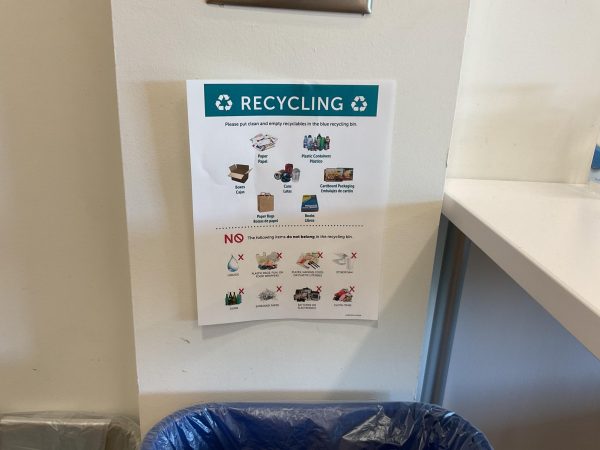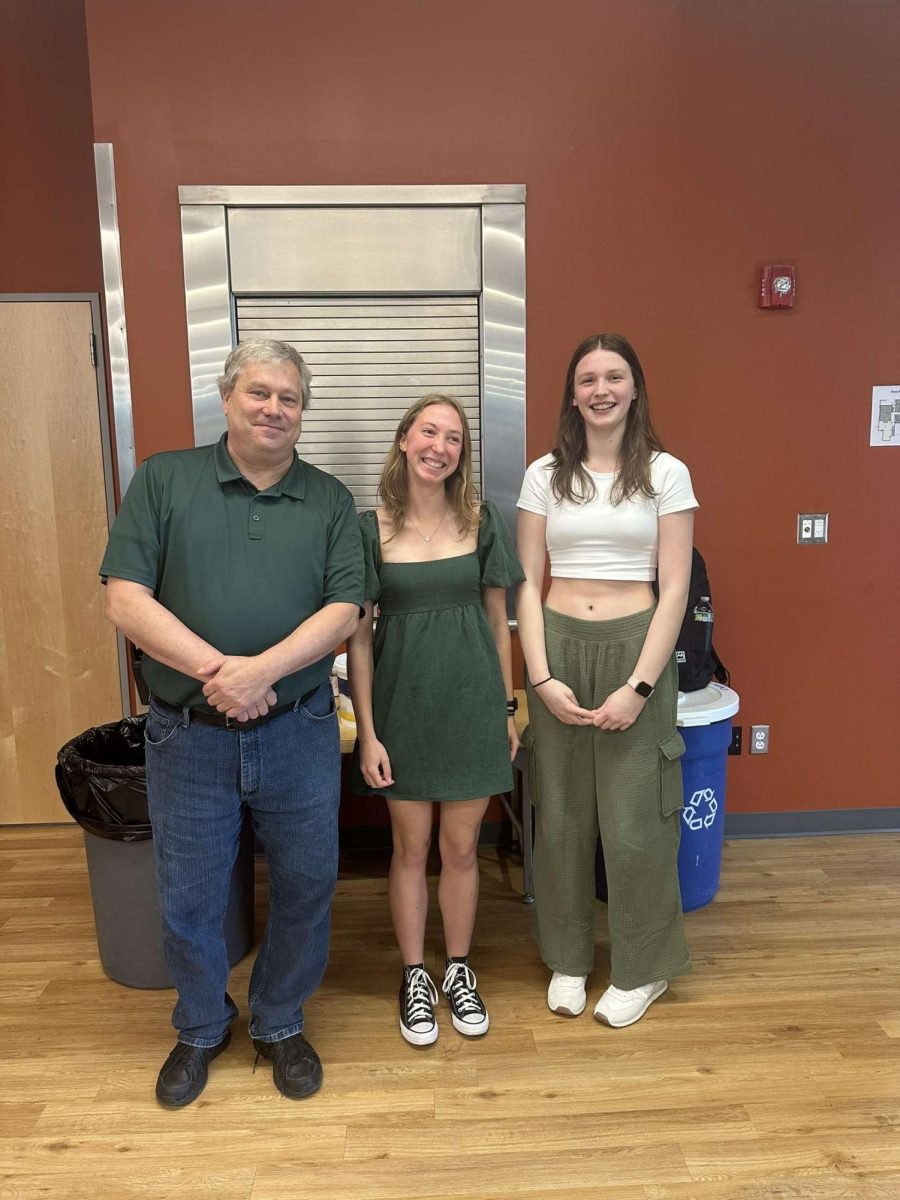A group of four students from Science teacher Emily Lisy’s ECE Environmental Science class planned an Environmental Spirit Week for 4/29-5/3. Every year, in lieu of a final exam, Mrs. Lisy has students work in groups to create a year-round research project. Students work on various days throughout the year to collaborate on long-term projects. The projects involve making an impact somewhere outside the classroom.
These projects include but are not limited to, creating posters at Hammonasset Beach State Park to raise awareness for the salt marshes, installing “no idling” signs to reduce carbon emissions around Morgan, or placing recycling bins in all the classrooms and accessible areas around the school. Students work on the projects for over a semester. This includes the “real-life” aspect of the project, the written parts, and a presentation.

Seniors Julia White, Sara Morrisey, Corey Meyer, and Sophomore Isabelle West created the Environmental Spirit Week. The students said the week was a success. Julia White, one of the students who helped organize this spirit week, shared “I heard a lot of positive feedback because it wasn’t just about dressing up. It was about actually making a difference.”

Although the final product may have been the spirit week, a long line of research preceded it. The team had to research various environmental issues to determine the spirit days. Then, the students met with Principal Keri Hagness, proposed their spirit week to her, and received her approval to hold the spirit week.
Below are the Spirit days:
Monday 4/29 – Wear green to kick off the week!
Tuesday 4/30 – To save energy, keep all unnecessary lights off.
Wednesday 5/1 – Bring reusable containers and water bottles to reduce waste.
Thursday 5/2 – Wear thrifted clothing and bring in old clothes to donate.
Friday 5/3 – Wear blue to close out the week!
Another Environmental Science project was installing the “no idling” signs, led by Seniors Jacob Jones, Lucus Hoadley, Michael Hicks, and Junior Henry Tessman. This project involved researching the negative effects of idling cars on the environment, the legal punishment that comes with it, and how to prevent the idling of vehicles. Senior Jacob Jones shared, “It was interesting that idling your car was actually against the law in the state of Connecticut.” At Morgan, the final bell that marks the end of the school day rings at 2:10 PM, and by 1:45, there is already a line of cars by the student pick-up area.
Not only do the carbon emissions of these waiting vehicles lead to the global warming of the Earth, but they can also lead to health issues like cardiovascular morbidity, asthma, respiratory illnesses, lung function, and chronic obstructive pulmonary disease. According to the United Nations, “The world is now warming faster than at any point in recorded history.” With this project, students are trying to reduce carbon emissions at Morgan to protect the environment in addition to its students and faculty.
Outside of Morgan and the Clinton community, seniors, Ainsley Corgan, Maeve Madura, Tyler Baldwin, and Ross Treubig are collaborating to make informational posters that will hang at Hammonasset Beach State Park. The posters provide information about the benefits of salt marshes and why they should be preserved. Due to the rising sea levels, the marshes are at high risk of being washed out. The group researched the positive impacts of salt marshes on birds, plants, fish, and turtles. According to the National Parks Service: “They provide shelter, food, and nursery grounds for more than 75% of coastal fisheries species including shrimp, crabs, and many finfish. Salt marshes also protect shorelines from erosion by creating a buffer against wave action and by trapping soils”.
The impactful projects undertaken by Mrs. Lisy’s Environmental Science class illustrate the power of education and real-world application that we strive for at Morgan. Through projects such as the Environmental Spirit Week, “no idling” campaign, and the salt marsh awareness posters at Hammonasset Beach State Park, students are not only learning about environmental issues but are contributing to their community and beyond. Through hands-on experience, Mrs. Lisy dedicates students to making a powerful environmental impact.


